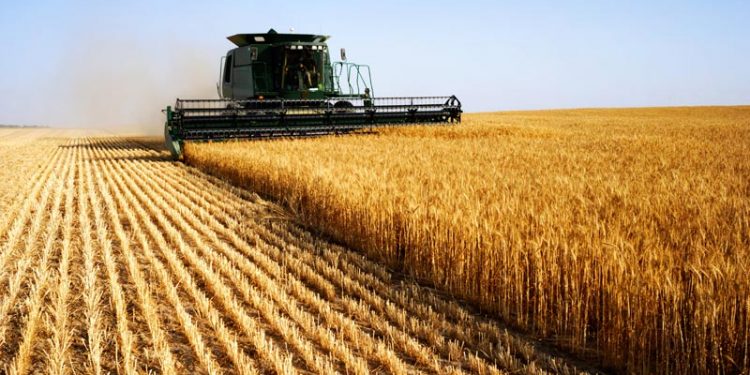Ghana cannot afford Large scale agric mechanisation – Prof Nyarko
Professor of economics at the New York University (NYU), Yaw Nyarko, has noted that Ghana cannot afford to embark on large scale agriculture mechanisation.
Prof Nyarko stated that, using machines to replace human activities with regards to farming can be costly for the country and will lead to huge job losses which can also lead to national security issues.
He again noted the initiative could be brutal on poor rural Ghanaian farmers.
Mechanism has the advantage of pushing up the efficiency of labour and enhancing the farm production per worker, and reduces the quantum of labour needed to produce a unit of output and this he said could greatly lead to unemployment with dire consequences for the economy.
“Right now, it’s impossible to do large scale mechanisation across the entire country. There are just too many farmers in too many places with too many pieces of land here and there; first of all, it’s practically not possible [because] people own the land and also think of the economic implications; large scale agriculture means that you taking machines to replace people”, he said.
“Agriculture is the major employer in this country, so the theory would say: let’s go and do a lot of borrowing, get a lot of capital and kick all of these people off their lands to produce a bit more productively and hopefully it will produce an output to help the nation. What’s going to happen to all these millions of people? What jobs are they going to be doing? What’s going to happen to the Ghanaian economy when you have all these without a job? We have a problem of young people in the city with massive unemployment.”
“Ghana is just a great place because somewhere else there would be riots on the streets with the lack of jobs, and the government is trying its best and so what, you are going to add to that massive unemployment among our rural folks? … I think we should try a bit of that [agric mechanisation] but everything would have to be done in tandem. We have to think through things very carefully. We have to keep in mind the reality on the ground,” he added.
Mr Nyarko who studies human capital and economic growth, which recently culminated in a pioneering study on the impact of brain drain on Africa’s intellectual and economic development, said, “Ultimately, in 50 years, Ghana is going to be that industrialised mechanized society; it’s going to happen, it’s inevitable and without a doubt, it’ll happen but we’re living today, we don’t live in the future.
“We live with the reality of what we have and the reality of what we have says that we do a combination of both. You let the mechanization occur organically at a particular rate…it’s going to happen [agric mechanization] but for someone to say that we come in with massive amounts of money, kick-off all these farmers from the fields it’s not going to happen…”
He said during the rise of cocoa production, Ghanaian farmers did it on small scale farming level and yet the country was the world’s largest producer of the commodity at a point, adding, “… so we are able to manage a world-class industry with the highest quality cocoa even though we used what they call peasant agriculture.”
“So it can be done. We can have a blend of large scale mechanized agriculture and peasant farming, and so the two are going to co-exist for a while and eventually over the next few decades you’ll see one shrinking and the other rising,” he said.
He added that “So the only concern with centrally directed large scale agric mechanisation is that it may be way too costly, way too brutal and without enough common sense, that’s the only fear and yes, there has to be the involvement of government but it shouldn’t be too much. The economy has to get to a certain level.”







